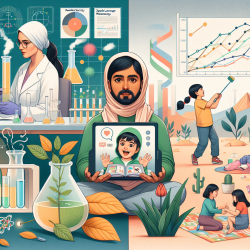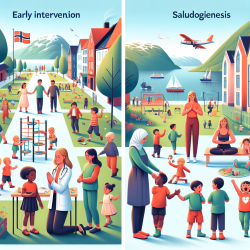Introduction
In the realm of speech-language pathology, practitioners are constantly seeking innovative approaches to enhance therapeutic outcomes for children. A recent review article titled Pesticide Toxicity: A Mechanistic Approach provides insights that can be adapted to improve the skills of practitioners, not only in understanding environmental factors affecting child health but also in encouraging further research.
Understanding Pesticide Toxicity
The review by Lushchak et al. (2018) delves into the pervasive nature of pesticides and their potential impact on human health, including children. Pesticides are known for their persistence in the environment, leading to bioaccumulation and potential health risks. The study highlights that pesticides can disrupt metabolic processes, immune responses, and neurological functions, which are critical areas of concern for child development.
Implications for Speech-Language Pathologists
For speech-language pathologists, understanding the environmental factors that may influence a child's development is crucial. Here are some ways the insights from the research can be applied:
- Awareness of Environmental Toxins: Practitioners should be aware of the potential impact of environmental toxins, such as pesticides, on the neurological development of children. This awareness can guide the assessment and intervention processes.
- Incorporating Environmental History: When assessing a child, consider incorporating questions about environmental exposure into the case history. This can provide a more comprehensive understanding of potential underlying factors affecting speech and language development.
- Advocacy and Education: Educate families about the potential risks of pesticide exposure and advocate for safer environmental practices. This can empower families to make informed decisions about their children's health.
Encouraging Further Research
The review emphasizes the need for further studies on the long-term effects of low-dose pesticide exposure. Speech-language pathologists can contribute to this research by documenting cases where environmental factors may have played a role in developmental delays. Collaboration with researchers can lead to a better understanding of these complex interactions and ultimately improve therapeutic outcomes.
Conclusion
By integrating knowledge from interdisciplinary research, speech-language pathologists can enhance their practice and contribute to better health outcomes for children. Understanding the potential impact of environmental toxins like pesticides is a step towards more comprehensive care.
To read the original research paper, please follow this link: Pesticide toxicity: a mechanistic approach.










